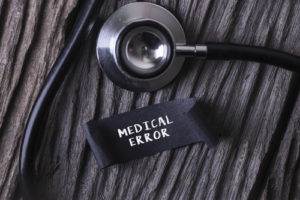 Understand what a doctor's standard of care is and how this standard is important to a medical malpractice case.
Understand what a doctor's standard of care is and how this standard is important to a medical malpractice case.
In the practice of medicine, the standard of care is the level of care that an average, prudent provider would be expected to give to a patient. It is the way a reasonable doctor, possessing the same background and education and faced with the same circumstances, would have acted in a given situation.
The standard of care is an important component of a medical malpractice case. For the plaintiff to prevail, they must show it is more likely than not that the defendant failed to uphold their standard of care when treating the plaintiff.
What “Reasonable Person” Means When Determining the Standard of Care
Since medicine is such a broad field, encompassing hundreds of disciplines and addressing countless unique situations, it is impossible to imply a single, cut-and-dry standard of care to any circumstance a doctor or medical provider might face.
In an effort to create a fluid standard flexible enough to apply to such a broad range of circumstances, the medical community developed the “reasonable person” test.
The person in question is not a specific, living, breathing human. Rather, it is a stand-in representing a reasonable and prudent medical provider faced with the same situation as the one whose conduct is being judged.
Reasonable Person Example
Here is an example to show how a lawyer might use the reasonable person test to show that their client’s doctor failed to uphold the standard of care.
Suppose the plaintiff went to the doctor complaining of certain symptoms. The doctor conducted a perfunctory exam and then dismissed the ailment as something minor that the patient could treat with an over-the-counter medicine. A couple of months later, the patient returned, complaining of the same symptoms, stating they never fully went away. Again, the doctor recommended an over-the-counter product and sent the patient home.
Finally, the patient sees another doctor, who orders much more robust testing. The tests confirm the patient has cancer.
Filing a Medical Malpractice Lawsuit
The patient may be able to file a malpractice lawsuit against the first doctor for failure to diagnose cancer. The patient’s lawyer may hire expert medical witnesses to assess the situation and give their opinions on how another doctor in the same situation would have acted.
If the experts agree that another doctor — the “reasonable person” — more than likely would have diagnosed the cancer, then the first doctor has breached their duty of care.
Call Newsome | Melton Today at 888-526-8947
The medical malpractice lawyers at Newsome | Melton want to help you recover compensation for your injuries. We fight aggressively to hold the person who caused you harm liable.
For a free case evaluation with a member of our team, call 888-526-8947 today.
Standard Of Care - Frequently Asked Questions

If you are facing mounting medical bills because of an injury or illness caused by medical malpractice, your best option is to file a lawsuit against the responsible party or parties. You have a good chance of winning a judgment or settlement that includes money for your current and future medical bills, plus compensation for
Read More
A person with locked-in syndrome can communicate, but it is exceedingly difficult, as they cannot talk or move any part of their body other than their eyes. To convey their thoughts or ideas, they must rely on eye movement patterns, and others must learn to read these patterns and understand them. This process can be
Read MoreStandard Of Care - News Articles

Naomi Pressey was born on February 6, 2008 at which time her doctors found a structural problem with her heart that required surgery. She was transferred to Children’s Hospital Colorado for the operation that was scheduled for February 10th. But the routine procedure quickly turned into a tragedy because of the alleged negligence of the
Read More
Last week around 30 outraged Kolkata citizens violently attacked a hospital in India after the death of Kuheli Chakraborty, a four-month-old infant. The enraged mob reportedly cracked the glass doors at the entrance of the facility prompting police intervention to break up the protesters. Kuheli’s parents allege that if not for the negligence of doctors
Read More